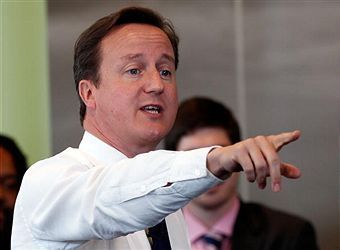 Conservatives have long been strong on family. They believe that families are the glue
that sticks us together, and that traditional nuclear families therefore plays an important role in sticking the whole nation together.
Conservatives have long been strong on family. They believe that families are the glue
that sticks us together, and that traditional nuclear families therefore plays an important role in sticking the whole nation together.
As a libertarian, I believe that people should live as they choose. Too many young people of my parents’ and grandparents’ generations were forced into marriages that were or became deeply unhappy – but divorce was thought scandalous. So people – particularly women, who rarely had independent means or income enough to escape – endured that misery. Many, too, were humiliated, or prosecuted, for conducting relationships that we would happily accept today.
But even as a libertarian I see the importance of having strong and durable families – whether any of their members are married or not. The statistics are clear: children from broken families, particularly ones where the parents have serial brief relationships, are more likely to get into trouble with the law, less likely to get good jobs, and more likely to end up on social benefits. And that’s trouble we could do without.
But it will take more than giving married couples a few tax breaks to restore traditional family relationships. Certainly, incentives are important and at the moment we are taxing the things that we want more of (like work) and subsidising the things that we want less of (like single parenthood and worklessness). The present system unquestionably adds to the break-up of families, and the social evils that stem from that.
State programmes also cause more subtle problems. For a start, the state pension system and the National Health Service make families less dependent on one another, and so weaken the bonds between them. In my youth, few people spent years in old age because they didn’t live that long, but it was perfectly normal and routine for families to look after their elderly relatives, finding space for them in their own homes. True, our society is more mobile and parents now live farther from their children, and there are other changes which might make in-home care harder to arrange than it was in the past. But I have no doubt that the main reason is that the financial and health care of the elderly has become a function of the state, and this has weakened the family bonds between us.
What, then, is the solution? The NHS and the state pension system were introduced for good reason: to ensure that people did not have to endure poverty or ill health when they did not have families to look after them. But there is something attractive about a system where an individual can rely on their family, rather than the state, when they are in need. This is routine in emerging economies that have not yet developed an extensive welfare state. The care and support given by families, being more personal, is probably better than that given through anonymous state institutions. But there are wider social benefits too. Perhaps it is time we thought about asking families to pick up more of the strain.
Eamonn Butler is Director of the Adam Smith Institute






Comments